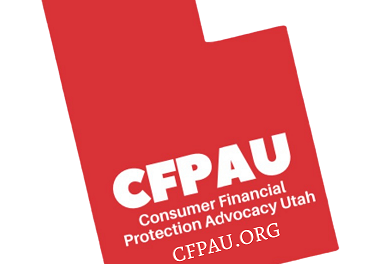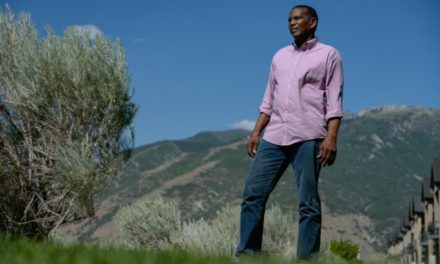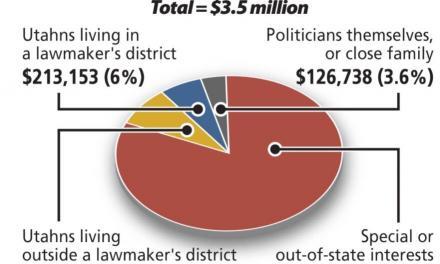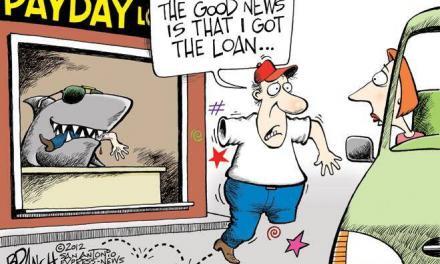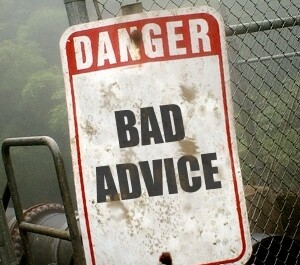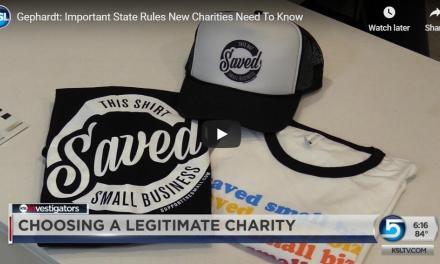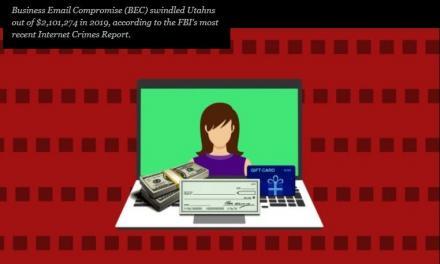
Consumer Warning Report: Utah’s Troubled Teen Industry

The Troubled Teen Industry: A National Outrage
Utah’s Troubled Teen Industry (TTI) has always been controversial and concerning news topic due to reports of abuse and neglect of vulnerable teens and financial exploitation of the teens themselves and victims’ families. Some say these residential treatment center facilities offer therapeutic interventions for young people dealing with mental health struggles, problem behaviors or trauma, but many have faced scrutiny for operating more as businesses with a profit motive than as providers of compassionate care.
This report will summarize the dangers posed by Utah’s TTI, present facts and statistics, and demonstrate the urgent need for reform. We will also discuss the closing of RTCs, ways to avoid bad residential treatment centers and introduce Wildflower Mountain Ranch as a model for what a good residential treatment center looks like with are ethical, trauma-informed care for troubled teens.
The Troubled Teen Industry is a multi-billion-dollar industry that encompasses residential treatment centers, therapeutic boarding schools, wilderness therapy programs, and behavior modification camps. One of these states is Utah, which has become a hotbed for these programs thanks to lax regulations and a favorable legal climate. But the industry has been dogged for decades by allegations of abuse — physical, emotional and sexual — and of financially exploiting families desperate to save their children.
Residential Treatment Centers Key Statistics and Facts
Utah’s Clout in The Industry: With over 100 residential treatment centers and therapeutic boarding schools, Utah is one of the nation’s primary providers of these types of residential treatment centers.
Lack of Regulation: In Utah, RTCs that identify as “boarding schools” or “wilderness programs” are not required to be licensed, leading to a regulatory loophole that allows many RTCs to operate without oversight.
Reports of abuse: The Salt Lake Tribune over a year ago reported that there were over 12,000 reported incidents of abuse, neglect or maltreatment in Utah’s RTCs from 2015-2020. These included seclusion, physical restraint and being deprived of basic needs.
Involuntary Servitude: Many families are drawn into dropping their teens into enrollments and flooded with high fees based on aggressive pyramid-type business models. Many programs cost more than $10,000 a month, without much clarity on the services they are delivering.
The Human Toll: Stories From Survivors
The accounts of survivors who have experienced abuse inside Utah’s TTI are equally heartbreaking and disturbing. These stories speak to calls for more accountability and reform in the industry.
Case Study: Survivor Story
One RTC survivor, who asked to be anonymous, talked about her time at an RTC in Utah. She was admitted to the facility at age 15 after battling depression and self-harm. Rather than being given the therapeutic care she needed, she faced severe discipline, including solitary confinement for days at a time and court-mandated manual labor as punishment. “They told my parents I was doing better, but all I was doing was learning how to hide my pain,” she said. “I was more broken when I left that place than before I came there.”
Another Survivor’s Account
Another survivor, then in her 20s, described being physically restrained by staff members at a wilderness therapy program. “If I didn’t do what they wanted me to do, they would hold me down for hours,” she recalled. “I still have disturbing flashbacks about it.”
These are not just isolated stories. They are the result of a systemic pattern of abuse and neglect that has gone unregulated. To read more survivor stories and review the disreputable company list database, we recommend you visit these independent TTI watchdog websites:
https://www.unsilenced.org/ Unsilenced is a nonprofit organization committed to ending institutional child abuse within the Troubled Teen Industry (TTI) through advocacy, education, and the pursuit of justice.
https://www.breakingcodesilence.org/ Breaking Code Silence is a 501(c)(3) nonprofit that represents children, youth, and adults who are/were incarcerated in the U.S. troubled teen industry (TTI), a network of privately-owned, powerfully punitive, and often wilderness-based therapy programs, residential treatment centers, therapeutic boarding schools, group homes, boot camps, and faith-based academies.
TTI Legislative Efforts and Reform Initiatives
Momentum to address abuses of Utah’s TTI has been building in recent years. Advocacy groups, lawmakers and survivors have called for laws to increase oversight and better protect vulnerable teens.
Key Legislative Developments
HB 399 (2021): This bill, which was signed by the governor after passing through the Utah Legislature, requires RTCs to report incidents of abuse, neglect, or maltreatment to the state’s Department of Human Services. It also requires background checks for staff members and restricts the use of physical restraint and seclusion.
Federal Legislation: U.S. Senator Jeff Merkley introduced the Stop Institutional Child Abuse Act in 2022, with the goal of creating federal oversight over residential treatment programs and stronger protections for teens in these programs. It was passed in December of 2024.
Despite these legislative pushes, advocates insist that more can be done to hold facilities accountable, and to guarantee that teens are receiving safe, efficient treatment and care.
The negative spotlight caused several RTCs — which have been plagued with litigation and public concerns — to lose their licenses in Utah. These closures underscore a need for more scrutiny of the industry — even as the programs offer a warning for families thinking about subjecting their teens to this kind of treatment. There is a long list of such companies in the databases of the two watchdog agencies I previously mentioned, along with the names and information of current residential treatment centers facing state regulatory issues and complaints and litigation from families.
We encourage any parent or agency to carefully consider visiting any facility and do their due diligence and research them at these watchdog agencies.
Recommendations for Families
For parents who are at the point of considering that their teen may require residential treatment, it is essential to do the research and ask the right questions before signing their child up for a program. Some key recommendations include:
Confirm Licensing and Accreditation: Make sure the facility is licensed by the state and accredited by a recognized organization (e.g. the Joint Commission).
Observe the Facility: If you are able, tour the facility in person to see the conditions and meet staff members.
Ask Detailed Questions About the Treatment Techniques: Find out about the program’s therapeutic orientation and its policies on restraint, seclusion and discipline.
Look for Complaints: Investigate the facility’s history, checking for complaints or allegations of abuse.
Explore Other Options: Outpatient therapy and community-based programs can often meet your needs with less restriction than residential treatment.
Utah’s Troubled Teen Industry has a long history of abuse, neglect, and financial exploitation with lasting consequences on the lives of countless teens and their families. The introduction of legislation and facility closures are positive first steps, but far more must be done to protect vulnerable adolescents and give them access to safe, effective care.
As consumer protection advocates, we encourage families to be prudent when considering residential treatment programs, and to call for more accountability from the industry. Let us join together to build a future where every teen receives the compassionate care they deserve.
Our Watchlist: Facilities Posing Risks to Youth
Important Cautionary List
The youth programs identified on this page are often categorized within the “Troubled Teen Industry.” These facilities in our opinon have been linked to troubling information, including broken state codes and regulations, accusations of mistreatment or evidence suggesting harm to residents.
This list is intended as an essential guide for families, caregivers, and child welfare advocates working to shield young people from potentially unsafe residential or wilderness program placements. Enrollment in such programs may involve substantial risks.
Information presented here is gathered from various sources: firsthand accounts from former participants, reports from investigative journalists, public records from government or regulatory agencies, details from legal actions, and assessments of program methodologies and stated policies.
It is crucial to perform your own comprehensive investigation. Do not rely solely on the marketing materials provided by the programs themselves.
Note Regarding Family Help & Wellness: Exercise extreme vigilance with any program connected to the Family Help & Wellness organization. Recurring problematic issues have been identified across their network of facilities, demanding caution even if a specific program isn’t individually listed here.
WARNING: The facilities listed below are part of the “Troubled Teen Industry” and have been associated with concerning reports, allegations of abuse, or documented harm. This watchlist serves as a critical resource for parents, guardians, and advocates seeking to protect vulnerable youth from potentially dangerous placements.
Placement in these programs can carry significant risks. The information compiled here is based on survivor testimony, news reports, official documentation, lawsuits, and analysis of program practices. It is vital to conduct thorough, independent research beyond program marketing materials.
This watchlist is updated periodically as new information becomes available.
Special Alert: We advise extreme caution regarding any program associated with Family Help & Wellness, due to recurring patterns of concern across their affiliated facilities, regardless of whether a specific program appears on this list.
Program Watchlist Details
| Name of Program | Program Type | Reported Abuse? | Reported Deaths? |
|---|---|---|---|
| CALO Programs | Therapeutic Boarding School | Yes | No (?) |
| Discovery Ranch | Ranch for Troubled Youth | Yes | Yes (1) |
| Elevations | Residential Treatment Center | Yes | Yes (1) |
| Eva Carlston Academy | Therapeutic Boarding School | Yes | No (?) |
| Grow at Momentum | Wilderness Program | Yes | Yes (2) |
| Heartlight Ministries | Ranch for Troubled Youth | Yes | Yes (1) |
| Heartline Christian Academy | Therapeutic Boarding School | Yes | No (?) |
| Judge Rotenberg Center | Residential Treatment Center | Yes | Yes (2) |
| La Europa Academy | Therapeutic Boarding School | Yes | No (?) |
| Liahona Academy | Therapeutic Boarding School | Yes | Yes (1) |
| Logan River Academy | Therapeutic Boarding School | Yes | No (?) |
| Masters Ranch | Ranch for Troubled Youth | Yes | No (?) |
| New Haven | Residential Treatment Center | Yes | No (?) |
| Provo Canyon School | Therapeutic Boarding School | Yes | No (?) |
| Redcliff Ascent | Wilderness Program | Yes | No (?) |
| Renewed Hope Ranch | Ranch for Troubled Youth | Yes | No (?) |
| Riverview Christian Academy | Therapeutic Boarding School | Yes | No (?) |
| Solstice West | Therapeutic Boarding School | Yes | No (?) |
| Sunrise RTC | Residential Treatment Center | Yes | No (?) |
| Trinity Teen Solutions | Ranch for Troubled Youth | Yes | No (?) |
| Turn About Ranch | Residential Treatment Center | Yes | No (?) |
| Uinta Academy | Therapeutic Boarding School | Yes | No (?) |
| Wildflower Mountain Ranch Residential Treatment Center | Residential Treatment Center | Yes | No |
| Wolf Creek | Therapeutic Boarding School | Yes | No (?) |
| Youth Health Associates | Residential Treatment Center | Yes | No |
What “Reported Abuse?” Signifies:
A ‘Yes’ designation here means evidence exists documenting specific incidents or recurring patterns of harmful treatment associated with this program. Such maltreatment may involve various forms, including harm that is:
- Physical: (e.g., hitting, inappropriate physical restraints)
- Psychological or Emotional: (e.g., degrading treatment, humiliation tactics, damaging use of isolation, manipulation of youth/parent relationships or treatments or actions contributing to psychological breakdown)
- Sexual: (e.g., sexual misconduct, boundary violations, assault)
- Neglectful: (e.g., failure to provide basic needs, dangerous facility conditions or practices and medical neglect)
- Exploitative or Discriminatory: (e.g., forced labor, attempts to change sexual orientation/gender identity via conversion therapy, persistent discriminatory actions by staff based on race, orientation, etc.)
The information leading to a ‘Yes’ is gathered from various channels, such as: firsthand accounts from former residents (survivor testimony), investigative journalism reports, official records from state licensing or regulatory bodies, details from lawsuits or legal actions, and analysis of the program’s own methods or policies (like behavioral level systems or rules outlined in handbooks).
What “Reported Deaths?” Signifies:
If marked ‘Yes’, this indicates public information points to one or more resident deaths having occurred where a possible connection exists to the program’s environment, operational practices, alleged negligence or abuse, or a suicide during enrollment. The number shown in parentheses reflects the count of such reported fatalities based on available information.
A ‘No (?)’ designation suggests that no confirmed resident deaths connected to the program were identified through publicly accessible information (like news archives or official reports), though this does not entirely exclude the possibility of unpublicized incidents.
Other articles and documents of interest on this topic:
- Consumer Financial Protection Advocacy of Utah. CFPAU.org. Consumer Warning Report Utah’s Troubled Teen Industry
- Securities Exchange Commission EDGAR Company Wildflower Management, Corp CIK#: 0001953711 (see all company filings) State location: UT File Number: 020-35048 https://www.sec.gov/Archives/edgar/data/1953711/000195371122000001/20221107_FormC.pdf
- Issuewire. Press Release Distribution Site to Distribute Meaningful News. CFPAU Issues “F Grade” & Consumer Alert for Wildflower Mountain Ranch Residential Treatment Center
- Mr. Crowd. Equity crowdfunding platform. Mr. Crowd offers retail investors the opportunity to invest in various businesses, building upon their own investment portfolio, supporting US businesses and seeking investment returns. https://www.mrcrowd.com/company/WMC
- Consumer Financial Protection Advocacy of Utah. CFPAU.org. The Reality Behind The Wildflower Mountain Ranch Residential Treatment Center Website
- Parent Experience. Wildflower Mountain Ranch BYPASS Recommendation
- Residential Treatment Guide & Directory. A Parent’s Path to Finding a Residential Treatment Center. Avoid Troubled Teen Industry RTCs
- Residential Treatment Directory. Finding Hope & Healing a Residential Treatment Directory. Why Verify RTC Insurance? A Parent’s Checklist to Avoid Financial Disaster
- Kingscrowd. A platform with a suite of tools designed for companies to find investors. Wildflower Mountain Ranch Investor Stock Sales Page. https://kingscrowd.com/wildflower-management-on-mr-crowd-2024/
- Residential Treatment Center Watch List. https://residentialtreatmentcenter.org/avoid-troubled-teen-industry-rtcs/
- MBA Standards Board. MBA Case Study: Wildflower Mountain Ranch Residential Treatment Center Private Inurement Non-profit Alleged Scandal. https://applymba.org/wildflower-mountain-ranch/
Sources
- The Salt Lake Tribune. (2021). Investigation: Abuse, neglect reported thousands of times at Utah’s residential treatment centers. Retrieved from https://www.sltrib.com This source provides detailed investigative reporting on the abuse and neglect within Utah’s residential treatment centers, including statistics and survivor accounts.
- Merkley, J. (2022). Stop Institutional Child Abuse Act. U.S. Senate. Retrieved from https://www.merkley.senate.gov This source outlines the federal legislative efforts to address abuses in residential treatment programs, including the proposed Stop Institutional Child Abuse Act.
- Utah State Legislature. (2021). HB 399: Residential Treatment Amendments. Retrieved from https://le.utah.gov This source provides the text and details of Utah’s HB 399, which mandates reporting of abuse and limits the use of restraint and seclusion in residential treatment centers.
- National Association of Therapeutic Schools and Programs (NATSAP). (2023). Understanding the Troubled Teen Industry: Risks and Recommendations. Retrieved from https://www.natsap.org This source offers an overview of the Troubled Teen Industry, including risks associated with residential treatment programs and recommendations for families.
Written by the Consumer Financial Protection Advocates of Utah (CFPAU.org) Date: May 19, 2025
